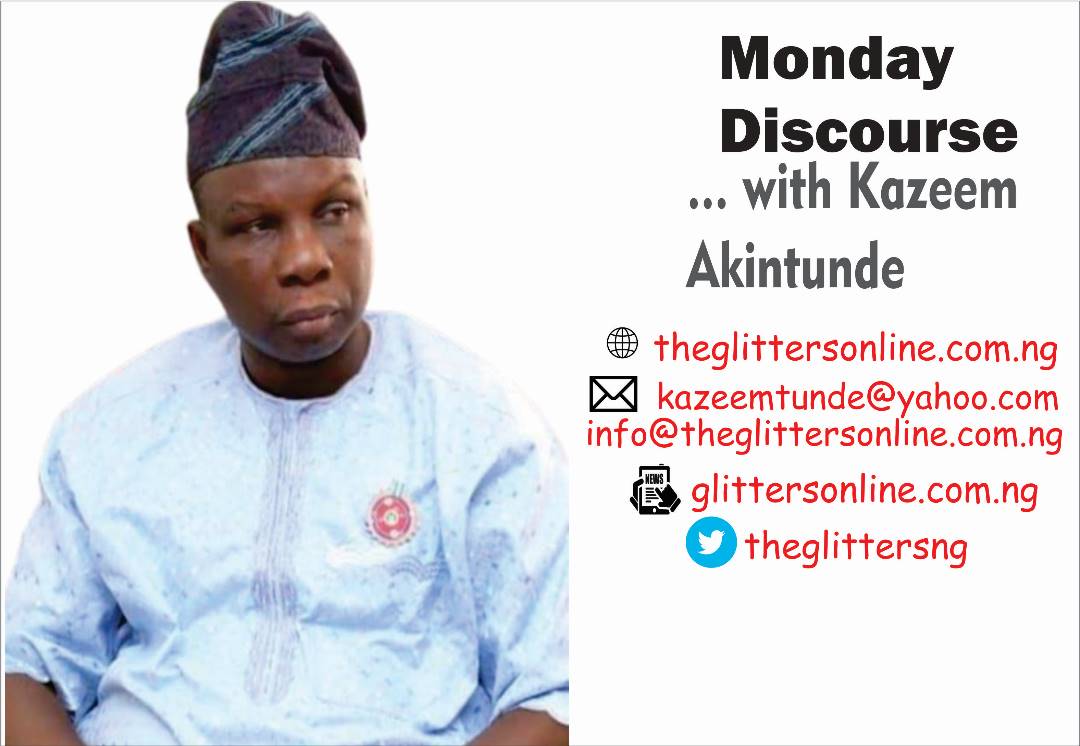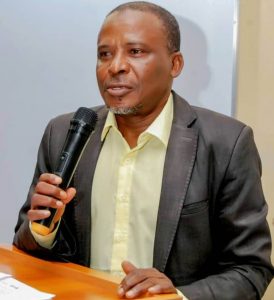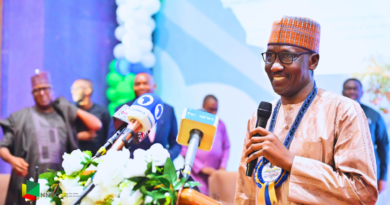Aftermath of the 2023 Presidential Election
By Kazeem Akintunde
The 2023 presidential election has come and gone. It is now time to do a postscript and examine issues that define the poll. One of those issues is the dismal number of voters that turned out to cast their ballots.
On February 25, 2023, a little above 24 million Nigerians went to the poll to elect a new president. This dismal number is far less than the 93.4 million Nigerians that registered to vote. Many Nigerians are shocked by the low turnout of voters on Election Day and have attributed it to the late-hour cashless policy introduced by the Central Bank of Nigeria, CBN, and few weeks before the poll. Majority of Nigerian feel that the policy should not be regarded as a cashless policy, but as cash confiscation, as they were rendered ‘naira-less’ by the CBN.
Many lives were lost. Those who ordinarily should have traveled to their hometowns to vote were stuck in their states of residence, and thereby disenfranchised. Some, out of anger, decided not to vote after all, as being so dehumanized by the state of affairs in the country, they did not expect much from their government again.
In spite of the noise and hype on social media and the frenzy that accompanied the registration of new voters as well as PVC collection, many would have thought that over 80 per cent of voter’s turnout would be recorded during the election, but were left disappointed.
The turnout has never been this poor. In fact, the number of votes we had in the entire voting process for the presidential poll is lower than what the late president Umar Musa Yar’Adua alone got in 2007. The former Katsina state governor polled 24.6 million votes to win the election. Can we attribute the drop to the introduction of BVAS which eliminates the usual practice of vote allocation that Nigeria elections are noted for?
Even in Lagos, where there are over seven million registered voters and over four million PVCs collected, just a little over one million voters cast their ballot on election date.
After over 48 hours of vote counting and collation, the Chairman of INEC, Professor Mahmod Yakubu announced Asiwaju Bola Ahmed Tinubu as the winner of the poll. Tinubu, the candidate of the ruling APC, got 8,794,726 votes.
Former vice President Atiku Abubakar of the People’s Democratic Party was able to garner a total of 6,984,520 votes, followed by Peter Obi of the Labour Party with 6,101,533 votes. As expected, the first and second runners-up rejected the election results even way before the collation was completed, with the electoral body having to urge them to approach the courts to seek redress.
There were minor reports of voter intimidation, suppression, and outright disenfranchisement in some parts of the country. And just like in every past election, all sides are pointing accusing fingers at one another. Now, two of the candidates have gone to court, each claiming to have won the poll.
The real winner of the exercise, in my opinion however, is the candidate of the Labour Party, Peter Obi, who, despite all odds, proved bookmakers wrong with his stellar performance in the election. Obi was not rated to pull any surprises in the election as he joined the race very late after quitting the People’s Democratic Party, PDP, when it became glaring that he would not clinch the party’s ticket at its primaries.
The former governor of Anambra State joined the presidential race as an underdog; he was not just a frontrunner in the election, but the massive votes he garnered threatened established candidates in the race. He did not just win the majority of votes in the South-South and South-East, the Labour Party succeeded in fielding candidates who defeated lawmakers who have been around over the years, such as Ndudi Elumelu, Sam Egwu, and a host of others. As at the last count, due to the effort of Peter Obi, the Labour Party has now produced seven Senators and many House of Representatives members at the National Assembly.
One of those lucky to be on the ballot of the Labour Party and on his way to the House of Representatives is Donatus Mattew, an Okada rider elected to represent Kaura Constituency of Kaduna State. It is hoped that he and others like him would be able to provide robust debate on issues of national development.
Obi has made a serious incursion into Nigerian politics and if he plays his cards very well, it should not be long before he realizes his political ambition. That is, if he is able to play politics the way it should be played by forming alliances with other regions. Though propelled by the youths with a good dose of ethnic and religious cards, Obi should reach out to other regions and win their trust if he hopes to get the presidency in the near future. What could be his major undoing, however, are the hordes of his fanatical supporters’, majority of whom are from the southeast who have now turned his quest for the Presidency into an ethnic agenda that must be realized at all cost. Winning Lagos State during the election has shown that he is one politician whose messages resonated with the youths, elites and those who are angry with the ruling party in the state.
Another winner in the poll is the president-elect, Bola Tinubu, who has proven that he can also be King after several years of being a kingmaker. Tinubu winning the presidential race however, did not come as a surprise as I had predicted as far back as November 20, last year that except God stopped Tinubu, he would emerge the next president of the country going by the way he had positioned himself to clinch the ticket of the party. See the link to the article below. (https://theglittersonline.com.ng/kazeem-akintunde-12/)
And the city boy actually clinched the ticket but not without a bloody nose. An astute politician, Tinubu, despite his not-too-clear background and alleged drug deals while in the United States of America, which made him forfeit some cash to the U.S government, Tinubu has built a long network of friends and colleagues across the country and for him, it was payback time. He is seen by political experts as a frontrunner in the race and that never changed until the end. Once he set his eyes on a goal, he devotes his entire energy to it until it is realized. Despite being a subject of ridicule on social media with gaffes trending on all platforms, he never wavered. He may have lost the battle in his stronghold of Lagos state, but he ended up winning the war.
Another probable winner is President Muhammadu Buhari and the All Progressive Congress, APC. The party should be happy that despite the poor performance of Buhari during his eight-year rule, the ruling party still succeeded in retaining power at the centre. Much of this, however, is due to the division within the opposition party, the PDP, which could not stay together as a unit in their efforts to wrestle political power from the ruling party. Three presidential candidates- Atiku Abubakar, Peter Obi, and Rabiu Musa Kwankwaso are all members of the PDP and left a few months before the poll to pursue their individual ambitions separately.
The in-fighting in the PDP was also compounded by the antics of the G-5 governors within its fold- Governors Samuel Ortom- Benue, Okezie Ikpeazu- Abia, Rotimi Makinde-Oyo, Ifeanyi Ugwuanyi- Enugu and Nyesom Wike- Rivers State, who have been battle-ready and were celebrated as speaking for the South, did help the ruling party to win the election. They even renamed themselves as the Integrity Group to give themselves a semblance of credibility as freedom fighters. Out of these five, at least three have kissed the canvas, having lost their senatorial bids. Wike and Makinde were fully in support of Tinubu’s presidential bid and they worked assiduously in delivering their states for the ruling party. The trio of Ortom, Ikpeazu and Ugwuanyi delivered their states for the Labour Party. For now, the opposition is yet to learn any lesson because there is no reason for you to go to war with a divided house. How can you seek to supplant an incumbent government while being so split down the middle?
Rabiu Kwankwaso, with his nearly one million votes in Kano alone is down and out. Impressive as Labour Party’s outing was, nearly does not kill a bird. If you don’t want your friend to become king, you cannot be a king’s friend. They fought Atiku to a standstill and frustrated his last opportunity to be president.
Election year always presents a new set of problems for INEC to overcome. We all know there is no flawless election in any part of the world, but despite a humongous budget, upgraded electoral materials, and BVAS, INEC still struggled with logistics. There were reports of late arrivals of election materials and officers in most parts of the country. As a matter of fact, most problems of this election can be attributed to INEC rather than any political malfeasance by the political parties involved. But the most contentious issue was the manner of transmitting results to the INEC server as stipulated by the Electoral Act. Were those results uploaded to INEC server in real time as stipulated by the law? That would be one of the contentious issues that the court would determine in the coming days as both Atiku and Obi have indicated their willingness to challenge the emergence of Tinubu as president-elect in court.
But the surprise for many was the way and manner many incumbent governors were tossed out of the system by the electorate in their bid to still remain relevant after eight years in power. In the past, the Senate had been literally a retirement home for past governors, but this time around, some of them were kicked out.
In this category is Governor Ben Ayade, who lost his bid to return to the Senate following his defeat by the incumbent Senator representing Cross River North, Jarigbe Agom-Jarigbe. Ayade, who was in the Senate between 2011 and 2015, lost the election with 56,595 votes against Agom-Jarigbe of the PDP who scored 76,145 votes. Agom-Jarigbe, a two-time member of the House of Representatives, was elected into the Senate through a bye-election in September 2021, following the death of Dr. Rose Okoh.
Also, Benue state Governor, Samuel Ortom, lost a senatorial election to an ex-aide of his, Titus Zam, candidate of the APC. Zam was a Special Adviser on Local Government and Chieftaincy Affairs to Ortom until the governor defected to the PDP in 2018. Zam, a strong disciple of the former governor of the state and Minister of Special Duties and Intergovernmental Affairs to George Akume, polled 143,151 votes to defeat Ortom, who scored 106,882, while the LP candidate, Mike Gbillah, scored 51,950.
Abia State Governor, Okezie Ikpeazu, also lost the Abia South senatorial district election to the candidate of the All Progressives Grand Alliance, Senator Enyinnaya Abaribe. Abaribe polled a total of 49,693 votes to defeat his closest rival and the candidate of the Labour Party, Chinedu Onyeizu, who got 43,903 votes while Ikpeazu of the PDP polled 28,422 votes
The Governor of Kebbi State, Atiku Bagudu, also lost his senatorial bid to Senator Adamu Aliero of the PDP. Aliero scored 126,588 votes to defeat Bagudu, who polled 92,389 votes.
As Nigerians gear up for state governorship and House of Assembly polls this Saturday, it is hoped that politicians would now take Nigerians more seriously and deliver on their promises once they get to power. The parlance on the streets now is “if you do anyhow, be ready to see anyhow”.
See you next week



